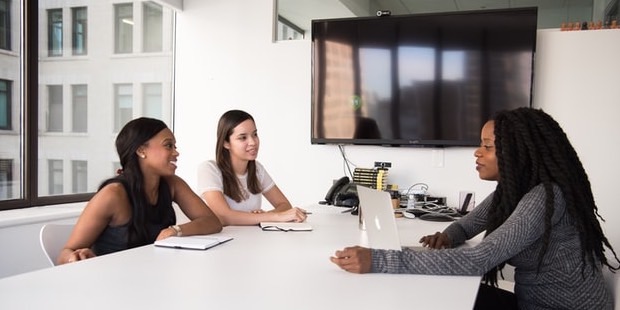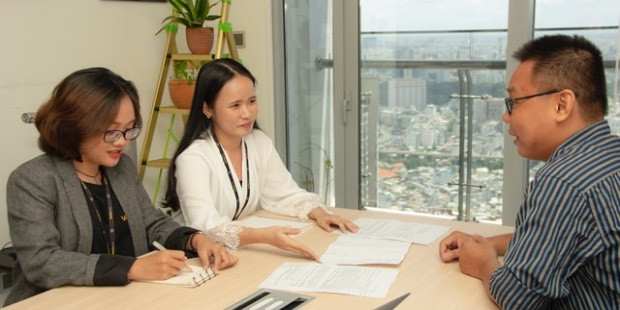5 Tips to Avoid Being Self-Conscious During Job Interviews

Job interviews can be nerve-wracking. As much as you want to be confident during the interview, jitters can oftentimes prevent you from doing the best of your ability. This can result in a failed interview as well as a failed job opportunity. To help you avoid being self-conscious and instead feel confident during job interviews, here are five tips to help you out:
1. Connect with interviewers
When sitting down with the interviewer or hiring manager, you may think that impressing them is the best way to get the job. Although your experience and skills are vital for you landing the job, avoid creating the interview as a discussion for all of your achievements. You’ll use up most of your time discussing your achievements in that the interviewer would rather stop the interview than ask other questions relating to your capabilities.

Instead of impressing, connect with the interviewer so that the conversation will flow easily. This also allows you to follow the interview questions better and focus your train of thought on giving the best answers possible. Connecting means avoiding sticking to the “script” when answering questions and engaging in a somewhat casual yet well-mannered conversation. One example is sharing a very short description of your school when the interviewer asks about your educational background.
2. Talk slowly
Job applicants oftentimes talk very fast as they want to end the interview as fast as possible. This is very counterproductive as interviewers won’t be able to follow and they will also notice that nerves have taken over. When nerves take over, this doesn’t bode well for the job seeker as their application will immediately be rejected.
Talk slowly and take time in answering the questions. Even if the interviewer still has numerous people to interview for the day, they will never ask you to hurry up as long as you answer the questions clearly and properly. Talking slowly also prevents you from rambling or talking about different things at the same time. When asked situational or complex personal interview questions and you’re unsure of what to answer, inform the interviewer that you’ll be needing a minute to process the question. The short pause will allow you to think about the best possible reply.
3. Practice breathing exercises
There’s a reason why anxiety always plays a big role in preventing one from doing the best of their capabilities. When you get anxious or nervous, the blood flows away from your brain and into your muscles. The lack of blood in the brain significantly impacts cognitive functions. Lessen anxiety by practicing breathing exercises.

Some of the breathing exercises you should do include taking deep breaths through your nose, taking in enough air to feel your stomach expand, and slowly exhaling through your mouth. Repeat the process three times and focus on your thoughts while exhaling. Do these exercises a few minutes before your interview or throughout the day if you’re feeling very nervous.
4. Prepare and rehearse answers
Much like taking exams, a focused interview preparation gives you a better chance of getting hired. The more you prepare and rehearse answers for possible questions, the more the interviewer will be convinced of hiring you for the role. Make sure to rehearse out loud and not just practice in your head. This allows you to practice your public speaking skills, especially the volume and tone of your voice. When practicing, ask a friend or family member to help you with the mock interview.
There are hundreds of questions that interviewers may be throwing. Of course, it’s impossible to prepare for all of them. Just prepare for common questions and don’t worry about the rest. Some of these questions include “what are your strengths and weaknesses?”, "what makes you the perfect fit for this company?”, and “what can you contribute to the company?”, among others. You can search online for other possible questions. You may encounter a situational question or two; you can’t prepare for this beforehand so just think properly before responding.
5. Think positively
The odds may not always be in your favor during interviews, especially if hundreds more are applying for the same position. But this shouldn’t stop you from sending your application and attending the job interview. As hiring managers would commonly say as career advice, “as long as feel you did good, your chances of getting hired will always be positive”.

Always think positive and don’t dwell on the negatives if you didn’t get the job. You always have a chance to improve yourself and do better in the next interview. Always remember that job seekers don’t immediately get hired on the first try. Always keep your head up and it won’t be long before a potential employer gives you a job offer.
In closing
Being self-conscious is very common during job interviews. But don’t let it become a hurdle for your professional career. The five tips listed above should help you polish your interview skills and avoid being too self-conscious during the interview itself.









